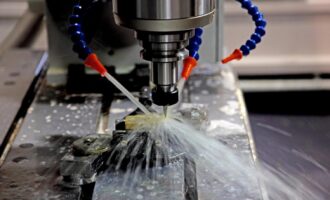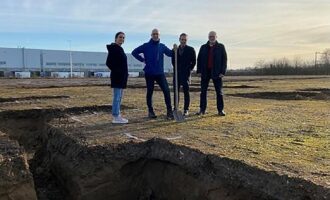
Infineum to publish its first sustainability report
Infineum, a leading formulator, manufacturer, and marketer of petroleum additives for the fuel and lubricant industries, expects to publish its first sustainability report sometime in April 2021, says Maurizio Abbondanza, technology & sustainability director at Infineum UK Ltd. The release of the sustainability report marks an important milestone for the organisation. For the first time, the company will share its sustainability agenda, targets, and a path to creating a sustainable future. As Infineum is not publicly listed, the company is not obliged to share this information to the public. Infineum is a joint venture between ExxonMobil and Shell formed in January 1999, by combining their respective additives businesses.
Historically, the oil business in general has placed minimal focus on the area of sustainability, but this is changing. Abbondanza spoke with Vicky Villena-Denton, CEO and editor-in-chief of F&L Asia Ltd, on the latest episode of F+L Webcast to provide an update on Infineum’s sustainability efforts. In 2017, sustainability became more prominent in the company’s agenda off the back of a review of the company’s strategy and megatrends, says Abbondanza.
A chemical engineering graduate from the University of Genoa in Italy, Abbondanza joined Paramins, the additive company of ExxonMobil, in 1997 — prior to the formation of Infineum. Two years later, Paramins merged with Shell to form the joint venture we now call Infineum. Abbondanza has accumulated diverse experience in manufacturing, sales, supply chain, procurement, and technology at the additive company. Responsibility for sustainability was added in 2017 alongside the technology director role he has held for the past five years. A broad understanding of an organisation is critical when it comes to sustainability, suggests Abbondanza.
Increasingly, oil majors are signalling their climate intentions with a commitment to carbon neutrality. The Infineum representative believes such a stance is unavoidable for any company. Infineum has progressed a long way on its sustainability journey, it does not currently have a net-zero commitment but is working to develop its target. “I expect that sometime next year we will have a net-zero statement,” says Abbondanza. The process is being informed with a mix of pragmatism, to ensure buy-in from the organisation, and aspiration, he says. Removing carbon from supply chains is challenging as it requires different ways of thinking and working, and there is always a reason not to do it unless you keep the big picture in front of your eyes. We need to understand what is feasible,what the market needs and expects, he says.
Carbon neutrality is not a single company challenge, it is something that must be solved in partnership. The key to our future success is how we work together with key players in our value chain to deliver benefit to our end customers, emphasises Abbondanza. All the necessary tools are available to accurately measure sustainability. Companies know how to measure carbon footprints and have the appropriate databases and methodologies. Although, having the tools and implementing them is no small task, he says.
The most difficult undertaking is integrating sustainability criteria in your thinking and comparing sustainability credits with financial credits. How you assess and compare sustainability with other business criteria is more an art than a science, submits Abbondanza. Infineum has made significant progress in this area but is not yet at a place where we have this ‘art’ completely sorted, but “we are moving in the right direction,” confirms the sustainability and technology director.
Covid-19 is a ‘blip’ and is not going to dramatically change the megatrends, suggests Abbondanza. The disruption will be resolved, and supply chains will recover and go back to the normal way of doing business. If anything, Covid-19 has accelerated some of the trends, he says.
More so, the pandemic has provided a reality check for businesses that the hypothetical risks facing businesses are very real. Abbondanza emphasised the growing importance of mitigation of these theoretical risks. Our business could be disrupted tomorrow by climate change as much as it has been disrupted today by Covid-19, says Abbondanza.
To listen to the full interview, click here.









